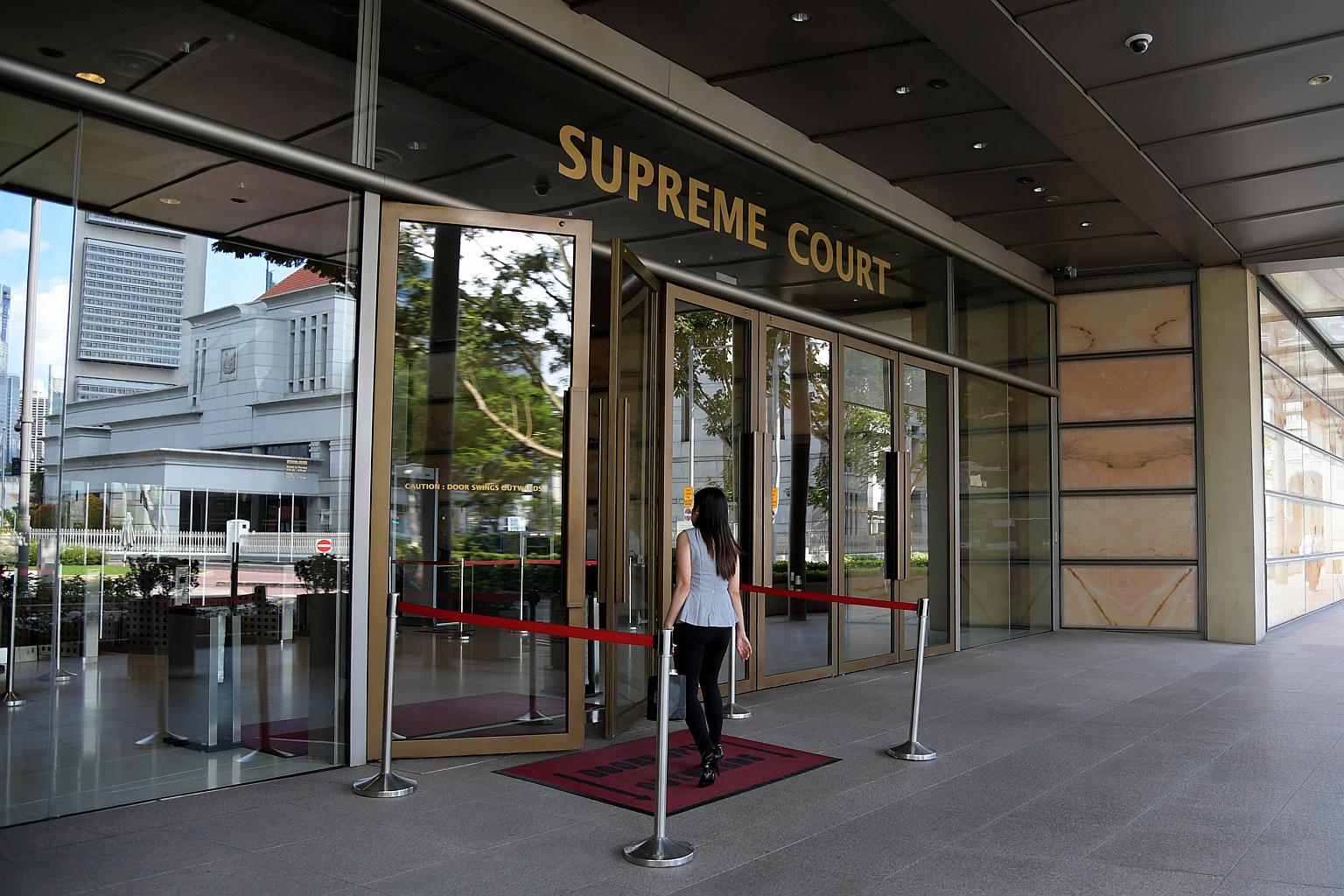Court of Appeal orders review of own judgment in drug-trafficking case
Sign up now: Get ST's newsletters delivered to your inbox

The Court of Appeal ordered a rare review of its judgment two years ago to overturn the acquittal of a Nigerian man who brought nearly 2kg of methamphetamine into Singapore.
ST PHOTO: JAMIE KOH
Follow topic:
SINGAPORE - The Court of Appeal on Wednesday (Aug 2) ordered a rare review of its decision two years ago to overturn the acquittal of a Nigerian man who brought nearly 2kg of methamphetamine into Singapore.
In a written judgment, the same panel of judges who reversed the acquittal of Ilechukwu Uchechukwu Chukwudi said they agreed to allow a request by his lawyers to review the case "due to the unique turn of events" at a late stage of the proceedings.
They were referring to a report by Institute of Mental Health psychiatrist Jaydip Sarkar - prepared by the prosecution for sentencing - which said Ilechukwu suffered from post-traumatic stress disorder (PTSD) - a result of childhood trauma that came from witnessing a tribal attack.
Dr Sarkar said the PTSD was likely to have caused Ilechukwu to lie in the statements he gave to the Central Narcotics Bureau.
When the Court of Appeal reversed his acquittal in 2015, it concluded that his lies - told to CNB officers to distance himself from the drugs found in his suitcase - could be explained only by "his realisation of his guilt".
The apex court has now said it is prepared to accept this report, until proven otherwise, as "compelling material", despite what was said in the case of Jabing Kho.
The court was referring to the high-profile case of the Sarawakian murderer, who was hanged in May last year after a series of failed attempts to reopen his case.
In Kho's case, the court ruled that reviews of concluded criminal appeals would be allowed "only in truly exceptional cases".
On Wednesday, the court said: "The present motion is, in our view, such a 'truly exceptional' case because of the unique turn of events. It is entirely fortuitous that the IMH report - issued only at the sentencing stage and emanating from the prosecution's request for a psychiatric report - has raised a matter which has a crucial bearing on our decision."
The court added that it was not making a finding that Ilechukwu does indeed suffer from PTSD or that he was affected by it when he made his statements to the CNB.
"We are likewise not implying that he is innocent. His guilt or innocence is a matter to be determined at the subsequent review of our decision," the court said.
Ilechukwu's lawyer Eugene Thuraisingam told The Straits Times: "My client and I are humbled and grateful for the court's judgment in re-opening the appeal. My client looks forward to vindicating his position before the trial judge with the fresh evidence."
Ilechukwu arrived in Singapore from Nigeria on Nov 13, 2011. He passed a black suitcase to Singaporean Hamidah Awang, who placed it in her car and drove to Woodlands Checkpoint, where the bag was searched and the drugs were found inside.
Ilechukwu was arrested in his hotel room the next day.
In November 2014, Ilechukwu was acquitted by Justice Lee Seiu Kin in the High Court. The judge accepted that the Nigerian did not know the suitcase contained drugs. The prosecution appealed to the Court of Appeal, which overturned the acquittal and convicted him.
The Government recently proposed robust gatekeeping measures aimed at preventing abuse of the court process and the waste of judicial resources by people trying to reopen their criminal cases after exhausting all avenues of appeal.

